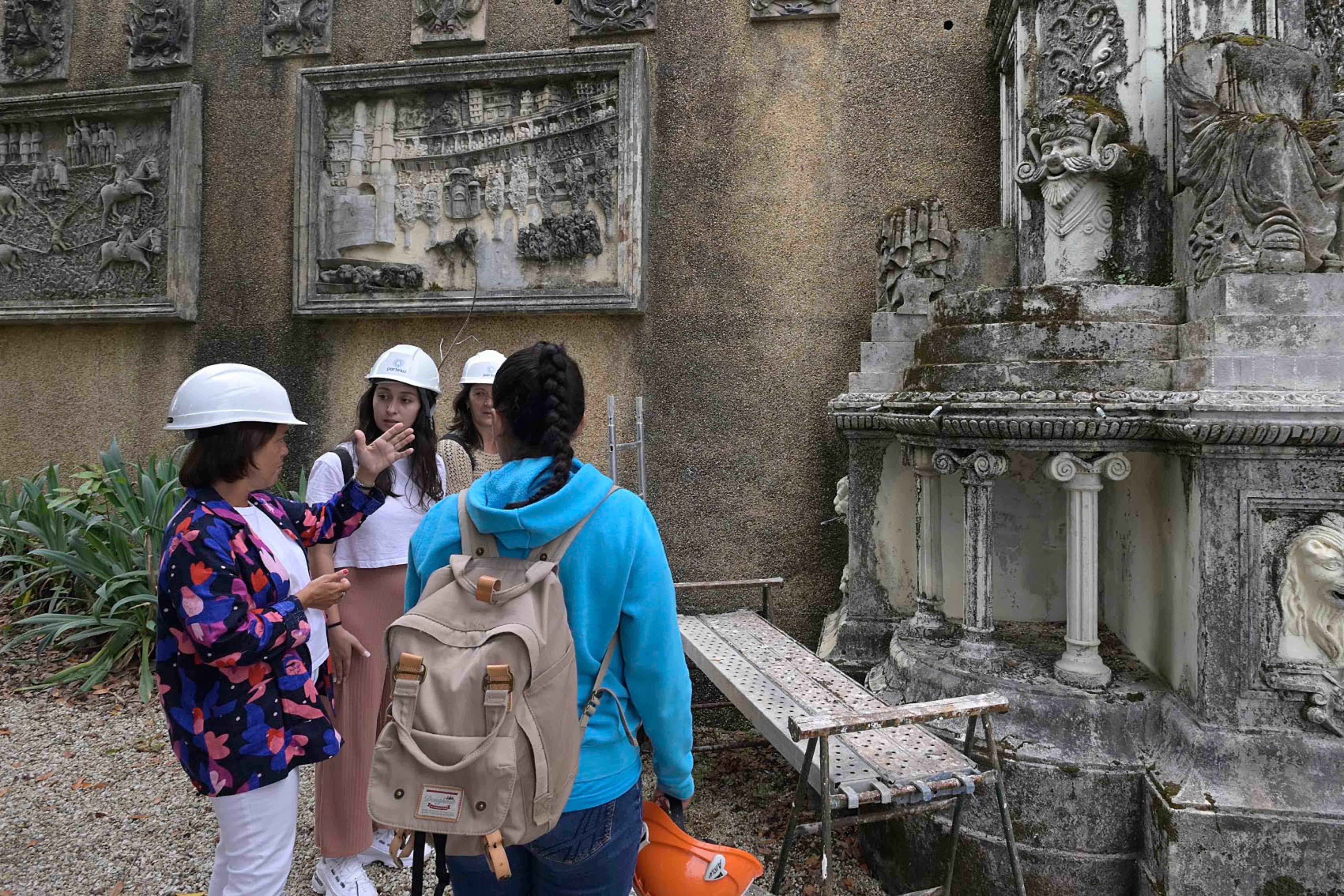
Latest information

Research for historical and cultural heritage
Parteluz Estudio asked itself a question: Is it possible to remove the plants that grow and colonise the stone of the cultural heritage sites and prevent them from taking root again soon after?
This is the starting point of the project that is being developed in the Parque del Pasatiempo in Betanzos, for which they involved Diana Pérez, a doctorate student in Biology, as part of the Industrial Doctorate programme of the Regional Government of Galicia.
Entitled "Development of protocols for the cleaning of permanent biological colonisation for application at Cultural Heritage sites," the project aims to combine academic and practical knowledge in the field of restoration to lay the foundations for the development of protocols for the permanent cleaning of biological colonisation. To this end, they are carrying out field experiments directly on the sites of the Pasatiempo de Betanzos and laboratory tests, in collaboration with the Group of Environmental Studies Applied to Natural and Cultural Heritage (GEMAP) of the University of Santiago.
Parteluz Estudio, based in Lugo and directed by Uxía Aguiar, an art historian and restorer specialising in sculpture, has in recent years been responsible for the restoration of architectural elements of the Galician Historical and Artistic Heritage, devoting a large part of her resources to sanitising the biological colonisation, which is abundantly present on all surfaces exposed to the open air.
At the end of this project, they will have an evaluation of the different methods of elimination of biological colonisation used in the restoration of stone heritage on different organisms, stone materials and environmental conditions, both in the laboratory and outdoors. They will be able to propose protocols for the permanent elimination of biological colonisation in the historical-artistic heritage, especially in areas with humid and warm climates, as is the case of Galicia.
Knowledge transfer
The cleaning of cultural and artistic heritage elements is the first task to be carried out in the renovation of historic centres, allowing the original splendour of the heritage to be restored for the greater enjoyment of the citizens.
The project, carried out within the framework of the Industrial Doctorate programme of the Regional Government of Galicia will have an impact on the international scientific community, as there is no previous holistic study of these characteristics, and will constitute the first proposal of protocols for the permanent elimination of biological colonisation in stone.
Industrial Doctorate Programme
Diana Pérez is one of the doctoral students participating in the Industrial Doctorate programme of the Regional Government of Galicia, which supports the hiring of doctoral students by Galician companies for their research and innovation projects.
A third edition of the programme, with a budget of 1.9 million euros, is planned for the near future to support the hiring of a further 15 students. The maximum annual grant to the company or technology centre is 36,000 euros, which is supplemented by the grant awarded to the university to cover project development costs and the cost of enrolment in the doctoral programme (up to an additional 10,000 euros).